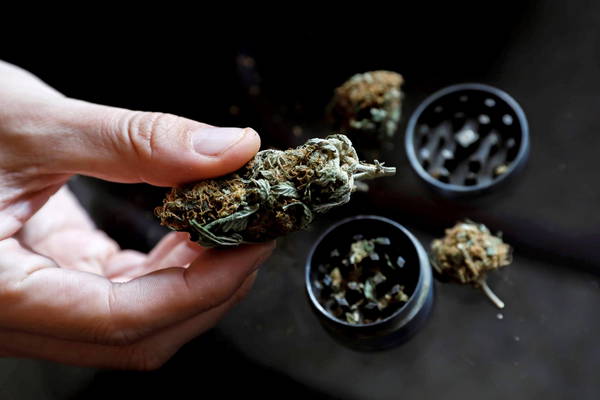
Men who have mental illnesses are more likely to additionally battle with substance misuse. There are several mental illnesses that can lead to drug use problems. Similar to how substance abuse may negatively impact mental problems.
Severe psychological symptoms, such as paranoia or hallucinations, are frequently brought on by substance addiction. It can also exacerbate the symptoms of mental health disorders. If there is a history of drug use or mental illness in a person’s family, they are also more likely to develop either one. Understanding that past is important for preventing addiction and for managing stress and one’s mental health.
List of Mental Conditions Associated Frequently with Substance Abusea
Even though it would be hard to mention every mental illness that might result in substance misuse, two stand out.
Depression
One of the most prevalent mental illnesses affecting individuals in America is depression. A major depressive episode was reported by about 6% of people in 2014, while serious depression affected 3-5% of people.
Sadness, exhaustion, guilt, and hopelessness are all indications of depression. Alcohol is one drug that depresses people. Depressants increase the risk of suicide while also making users feel more depressed.
Anxiety
Anxiety affects 18% of adult Americans. Even with such a large number, there are still more individuals who attempt self-medication and go undetected or mistreated. To relieve tension and worry, people with anxiety may misuse benzodiazepines. Benzodiazepine Xanax, which is often used to alleviate anxiety, has a significant potential for addiction.
For instance, a person with social anxiety may turn to drugs or alcohol to help them feel more at ease in social settings. While it could initially be a psychological reliance, an addiction to it can develop physically very fast.
People who have one of the mental illnesses on this list run the danger of becoming addicted to prescribed medicines as well as self-medication. A range of prescription medications are available for those attempting to manage different mental conditions linked to sadness or anxiety.
Anxiety affects 18% of adult Americans. Even with such a large number, there are still more individuals who attempt self-medication and go undetected or mistreated. To relieve tension and worry, people with anxiety may misuse benzodiazepines. Benzodiazepine Xanax, which is often used to alleviate anxiety, has a significant potential for addiction.
For instance, a person with social anxiety may turn to drugs or alcohol to help them feel more at ease in social settings. While it could initially be a psychological reliance, an addiction to it can develop physically very fast.
People who have one of the mental illnesses on this list run the danger of becoming addicted to prescribed medicines as well as self-medication. A range of prescription medications are available for those attempting to manage different mental conditions linked to sadness or anxiety.
From legal substances like alcohol, cigarettes, and prescription medications to illegal substances like marijuana, cocaine, and heroin, addictions span the spectrum. At Serenity Lodge, we provide dual diagnosis treatment for a range of drug addictions, beginning with detox, continuing with counseling, and concluding with your recovery. The following list of substance addictions is not exhaustive and is addressed at Serenity Lodge as part of dual diagnosis treatment:
- Addiction to Adderall
- Addiction to alcohol
- Addiction to Anabolika
- Benzo Dependence
- Cocaine and alcohol addiction co-occurring
- Crack Cocaine Addiction Concerta Addiction Cocaine Rehab
- Addiction to Diazepam
- Dilaudid Dependence
- DXM Dependence
- Heroin Dependence
- Addiction to Hydrocodone
- Kratom Dependence
- Addiction to LSD
- Marijuana Dependence
- Synthetic Marijuana Dependence
- Addiction to meth
- Methadone Addiction Pills
- Opiate Dependence
- Opioid Dependence
- Addiction to OxyContin
- Addiction to Oxycodone
- Addiction to PCP
- Addiction to Painkillers
Addiction and mental illnesses may both be controlled. You may acquire the treatment programs required to beat your drug use problem and learn how to manage your mental health with the aid of Serenity Lodge. To begin your recuperation right now.

There is a long history of stigmatization of mental illness in cultures all throughout the world. The theories surrounding the etiology of mental illness have been quite diverse, ranging from being seen as the mark of the devil to being seen as a moral retribution.
As a result, therapy traditionally has been violent and barbaric and hasn’t always made scientific sense. Trephining, for instance, dates back to the Neolithic era and involves making a hole in the victim’s skull to let the bad spirits out.
Stigma can have detrimental and severe effects. The lack of knowledge of others that comes with stigma can be hurtful and invalidating, but it also has more significant repercussions, such as fostering hatred, fear, and intolerance against other people. When someone is stigmatized, they are more prone to:
- unwillingness to seek therapy
- delayed medical care, which raises mortality and morbidity1Social exclusion, evasion, and seclusion
- decreased psychological health
- Poor communication between family and friends
- bullying, violence, or harassment
- Disability, a low quality of life, and greater economical burden
- higher levels of guilt and self-doubt
Although overcoming stigma is difficult, there are actions you may do to cope with unfavorable perceptions about mental health disorders. There are several things you may do to lessen the stigma associated with mental illness, both in society and in your own mind.
Keep in mind that many individuals suffer from mental illness: If you do, know that you are not alone. A mental disease of some description affects one in four Americans.
Helpful Resources






